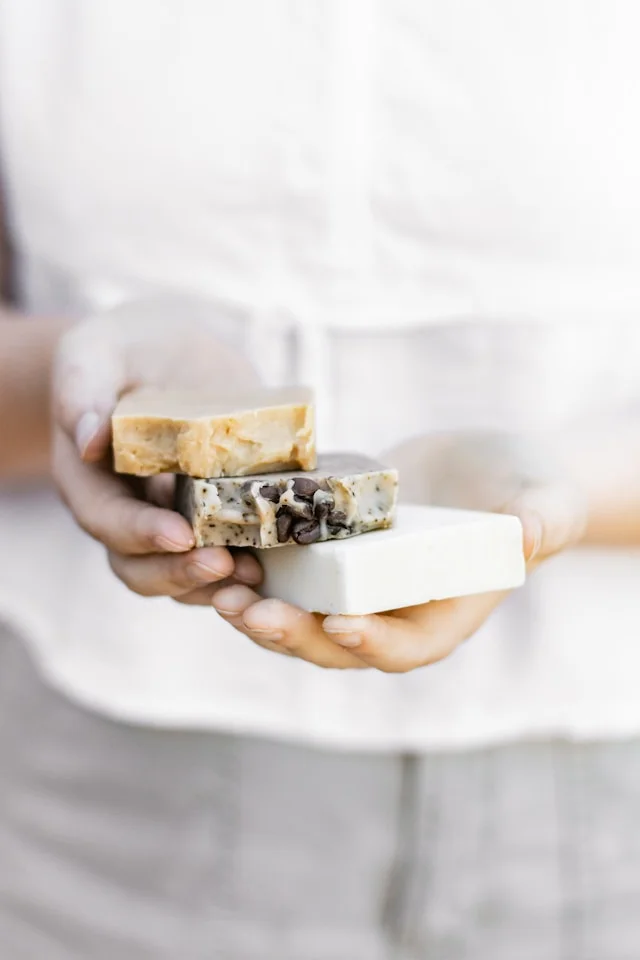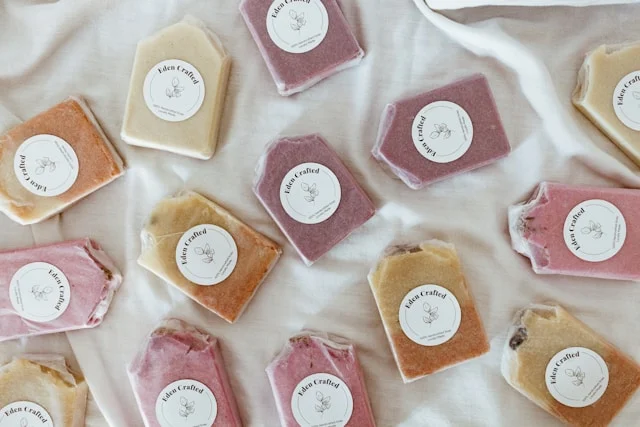Why Does My Homemade Soap Dry My Skin?
Making homemade soap is a fun and rewarding experience. You get to control what goes into it, which makes it feel special. But sometimes, the soap you make can end up drying out your skin, which is a bit of a letdown. So, what gives? If you’re wondering why this is happening, you’re not alone.
The main reason homemade soap can dry your skin is because it might not have enough moisturizing ingredients, or the lye-to-oil balance could be off.
Let’s dive a little deeper into why this happens and what you can do to fix it.
Getting to know the Ingredients

1. Lye and Oils Balance
When you make soap, you need to combine lye with oils. Lye is a strong ingredient that helps turn oils into soap. But too much lye can lead to a soap that’s too harsh for your skin. This is because lye strips away oils, which can leave your skin feeling dry and tight.
On the other hand, oils help to moisturize the skin. If you don’t have enough oils in your soap, there won’t be enough to balance out the lye. This can cause your soap to dry out your skin instead of leaving it soft and smooth.
2. Types of Oils Used
Different oils have different properties. Some oils are great for moisturizing, while others are better for cleansing. For example, coconut oil is popular in soap-making because it cleans well and lathers up nicely. But it can also be drying if used too much. Olive oil, on the other hand, is very moisturizing and gentle on the skin.
If your homemade soap dries out your skin, it might be because you used too much of a drying oil like coconut oil, and not enough of a moisturizing oil like olive oil.
The Role of Glycerin
When you make soap at home, glycerin is created as a by-product. Glycerin is great for the skin because it pulls moisture from the air to your skin. However, in commercial soap-making, glycerin is often removed and used in other products.
With homemade soap, glycerin usually stays in the soap, which should help keep your skin hydrated. But if your soap is still drying out your skin, there might be too little glycerin or other moisturizing ingredients.
Does Your Soap Have Superfat?
1. What is Superfat?
Superfatting is when you add extra oils to your soap recipe that won’t get turned into soap by the lye. This means there are leftover oils in the final product that can help moisturize your skin.
If your soap doesn’t have any superfat, it might not have enough extra oils to keep your skin from drying out. Some people like to add a little extra oil, like shea butter or cocoa butter, to make their soap more moisturizing.
2. How Much Superfat to Use?
The amount of superfat can vary, but many soap makers use around 5-8%. This helps balance out the cleansing effect with some moisturizing benefits. If you find your soap is drying, you might want to increase the superfat a little.
Water and Cure Time Matter
1. Too Much Water in the Recipe
Water is used to dissolve the lye in your soap-making process. If you use too much water, it can affect the final product. Too much water can make the soap too soft or take longer to cure. A longer cure time can make your soap more gentle, as it allows the lye to fully settle.
2. Proper Cure Time
Letting your soap cure for at least 4-6 weeks helps it to become more gentle on the skin. If you use it too soon, it might still be too harsh and drying. Make sure to give it enough time to cure, so the lye is fully neutralized, and the soap is milder.
Some Common Questions You Might Have
1. Can I Add Extra Moisturizers to My Soap?
Yes, you can add things like aloe vera, honey, or extra oils. These ingredients can help add moisture to your soap and reduce the drying effect.
2. Is It Possible to Make Soap Without Lye?
No, you cannot make real soap without lye. But you can use a method called “melt and pour,” which involves using pre-made soap bases. These already have the lye reacted with oils, so you don’t need to handle it directly.
3. How Do I Know if I Used Too Much Lye?
A simple way to check is by doing a “zap test.” Gently touch the soap to your tongue. If it gives you a zap or feels tingly, it might have too much lye and needs more curing time. Always be careful when handling soap that might still be caustic.
4. What Can I Do if My Soap is Already Made and Feels Too Drying?
If you’ve already made the soap and find it drying, you can try “rebatching” it. This involves melting the soap down and adding in extra moisturizing ingredients. This can help balance it out, so it’s less drying.
5. Is Homemade Soap Supposed to Feel Different Than Store-Bought Soap?
Yes, homemade soap might feel different because it usually retains glycerin, which commercial soaps often don’t have. But if it feels too drying, it might be a sign that something in the recipe could be adjusted.
Key Points to Remember
- Too much lye or too little oil can cause dryness.
- Choose oils wisely; some oils are more drying than others.
- Superfatting adds extra moisture to your soap.
- Give your soap time to cure for a milder result.
- Homemade soap retains glycerin, which should help with moisture.
Thanks for reading! I hope this article helped you understand why your homemade soap might be drying out your skin. Check out my other article on soaps for senior folks. And, if you have any questions, feel free to comment below!

